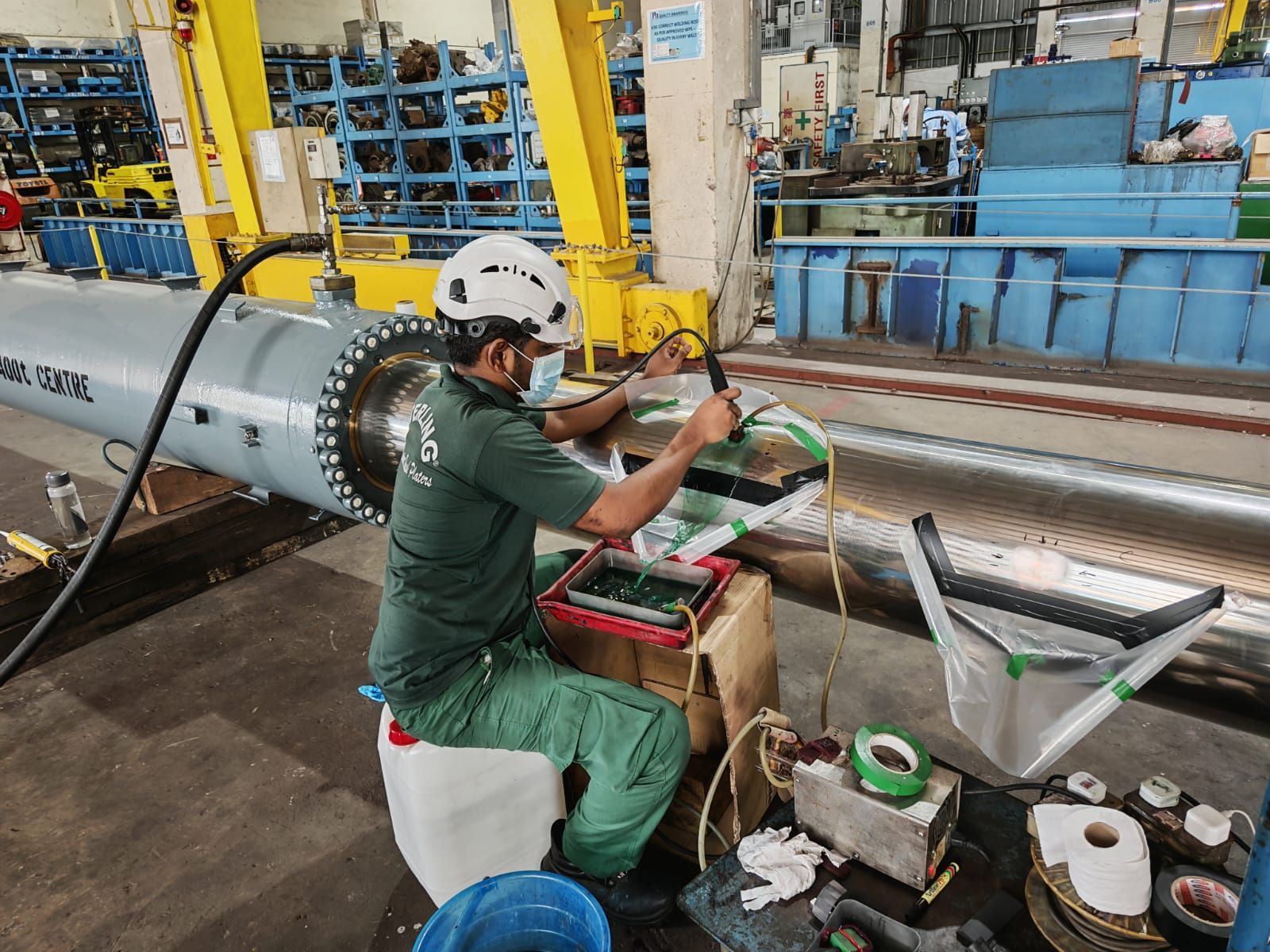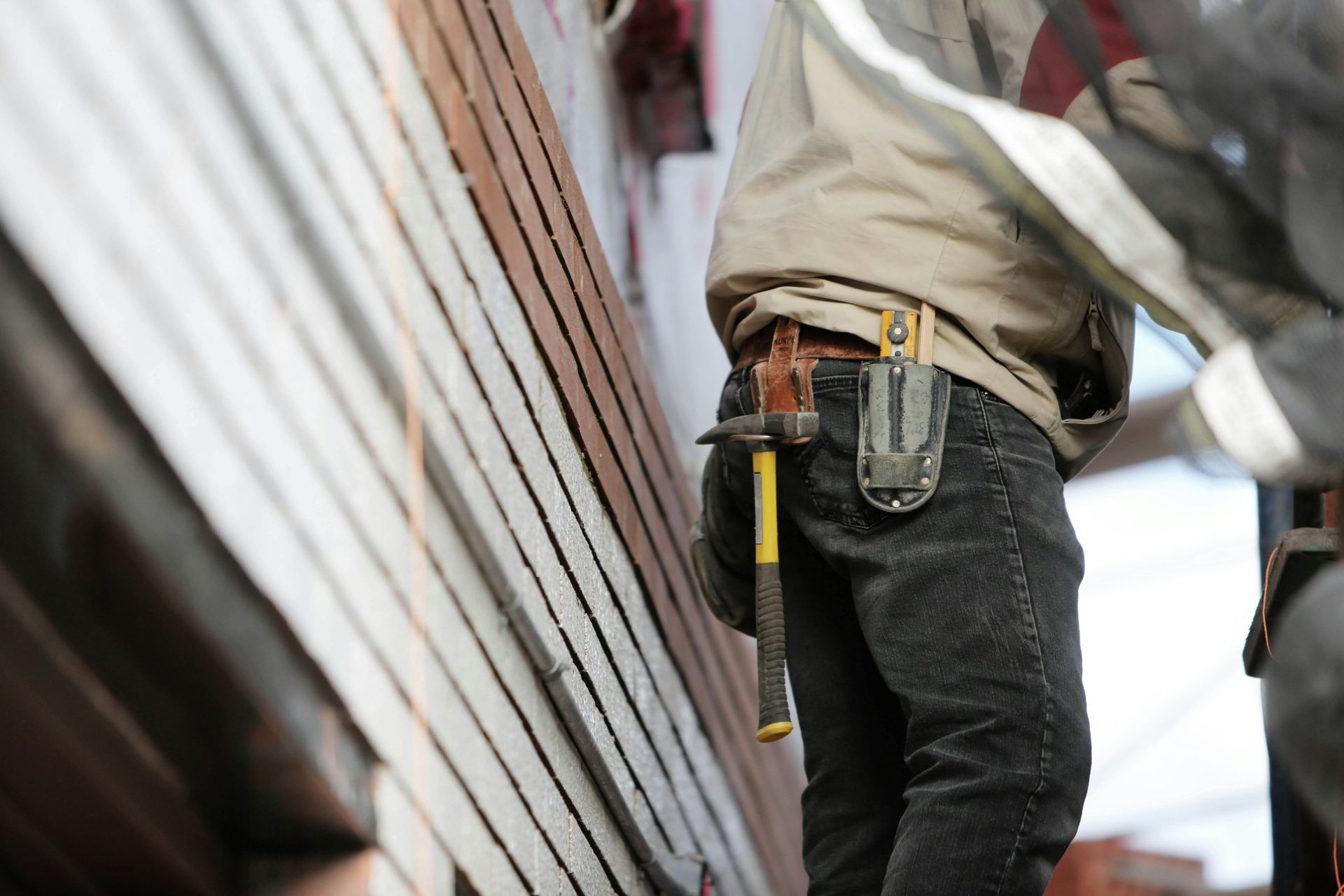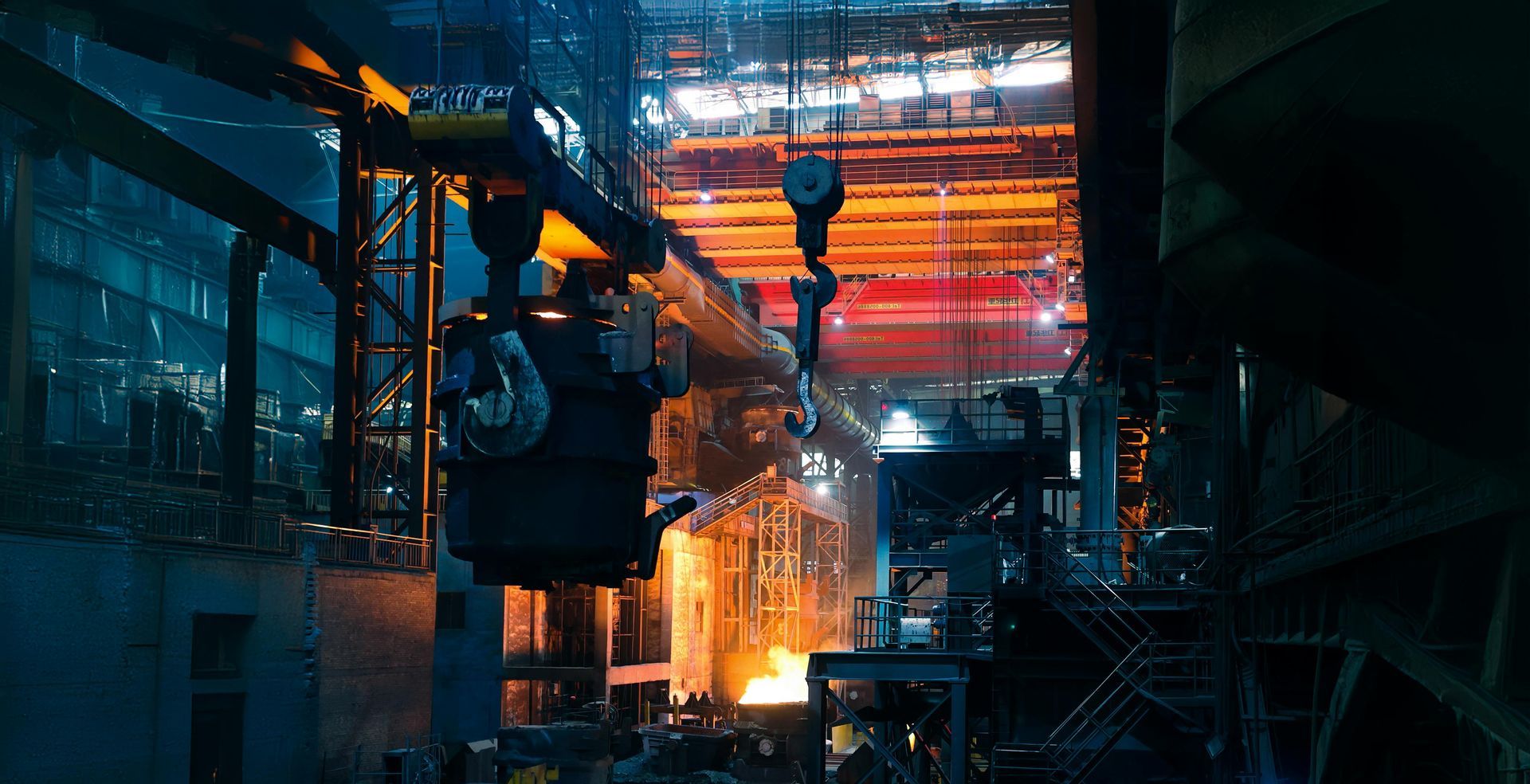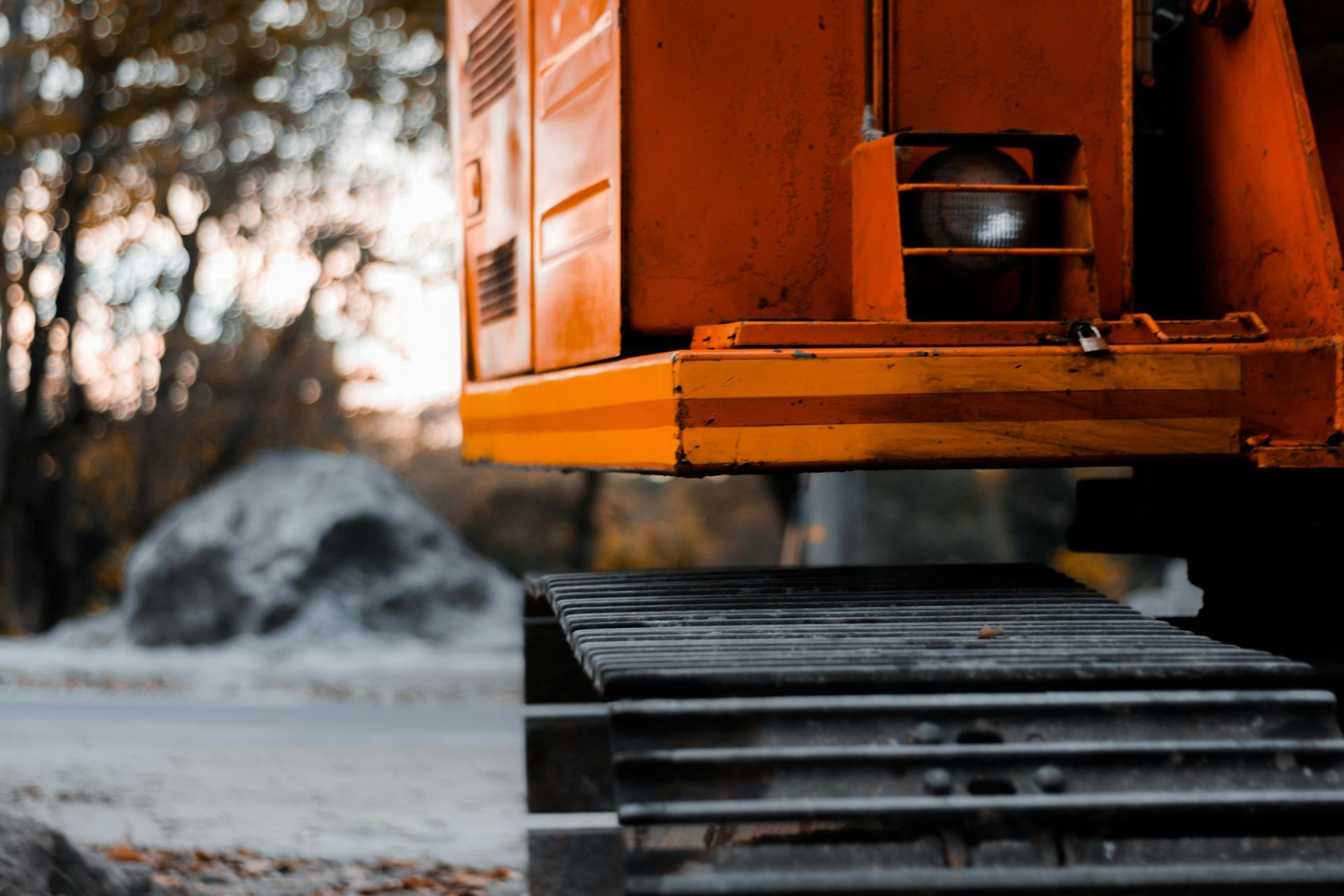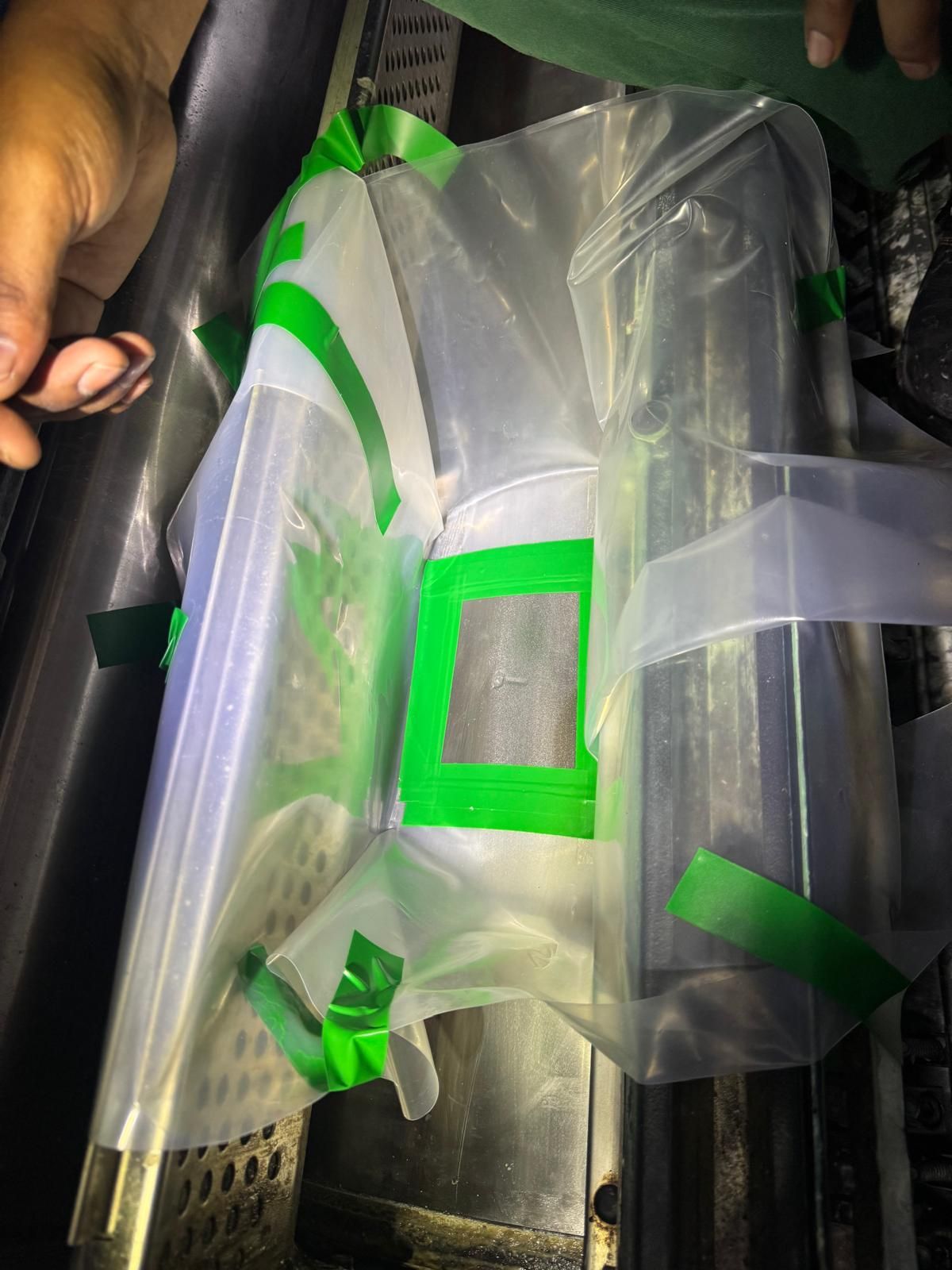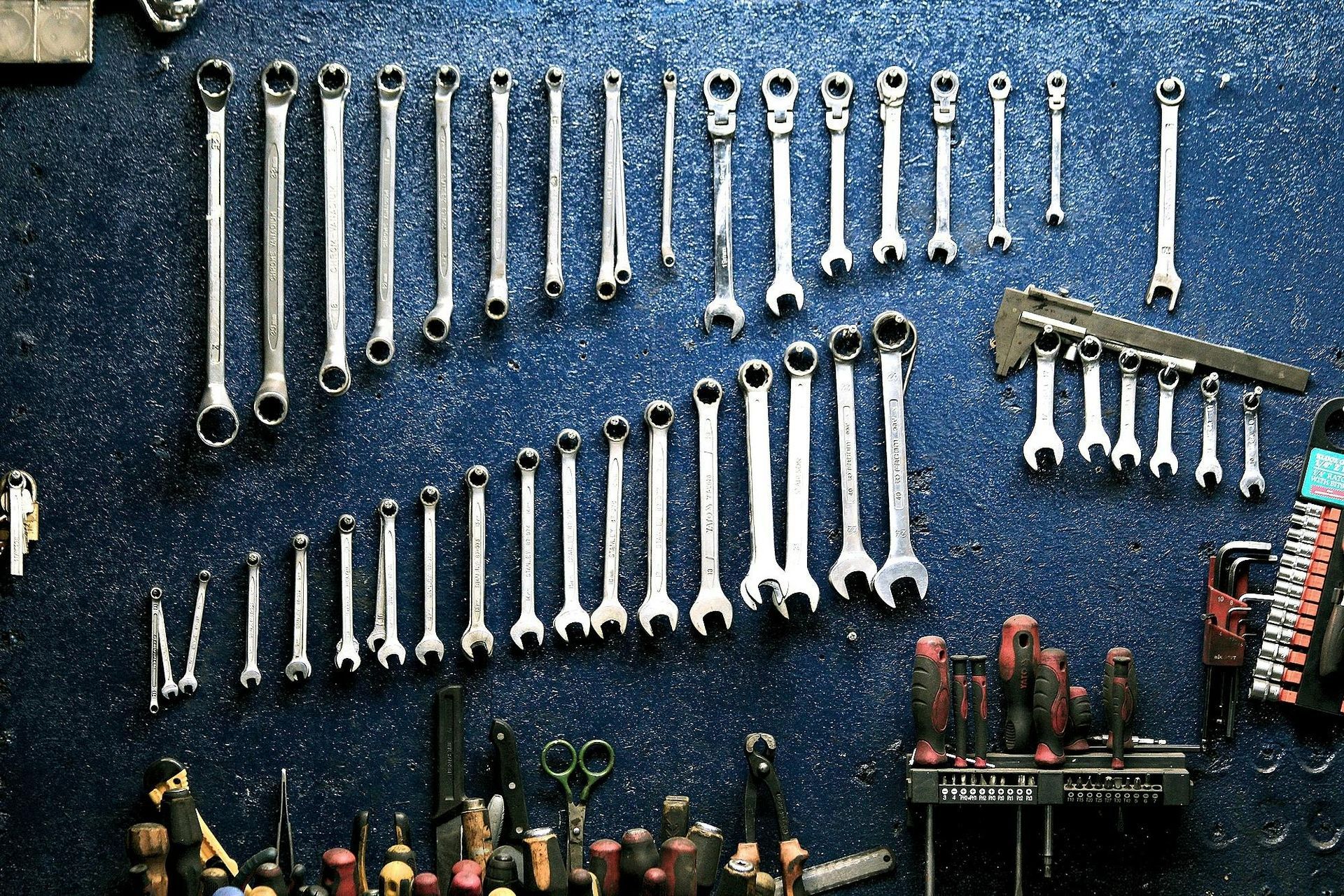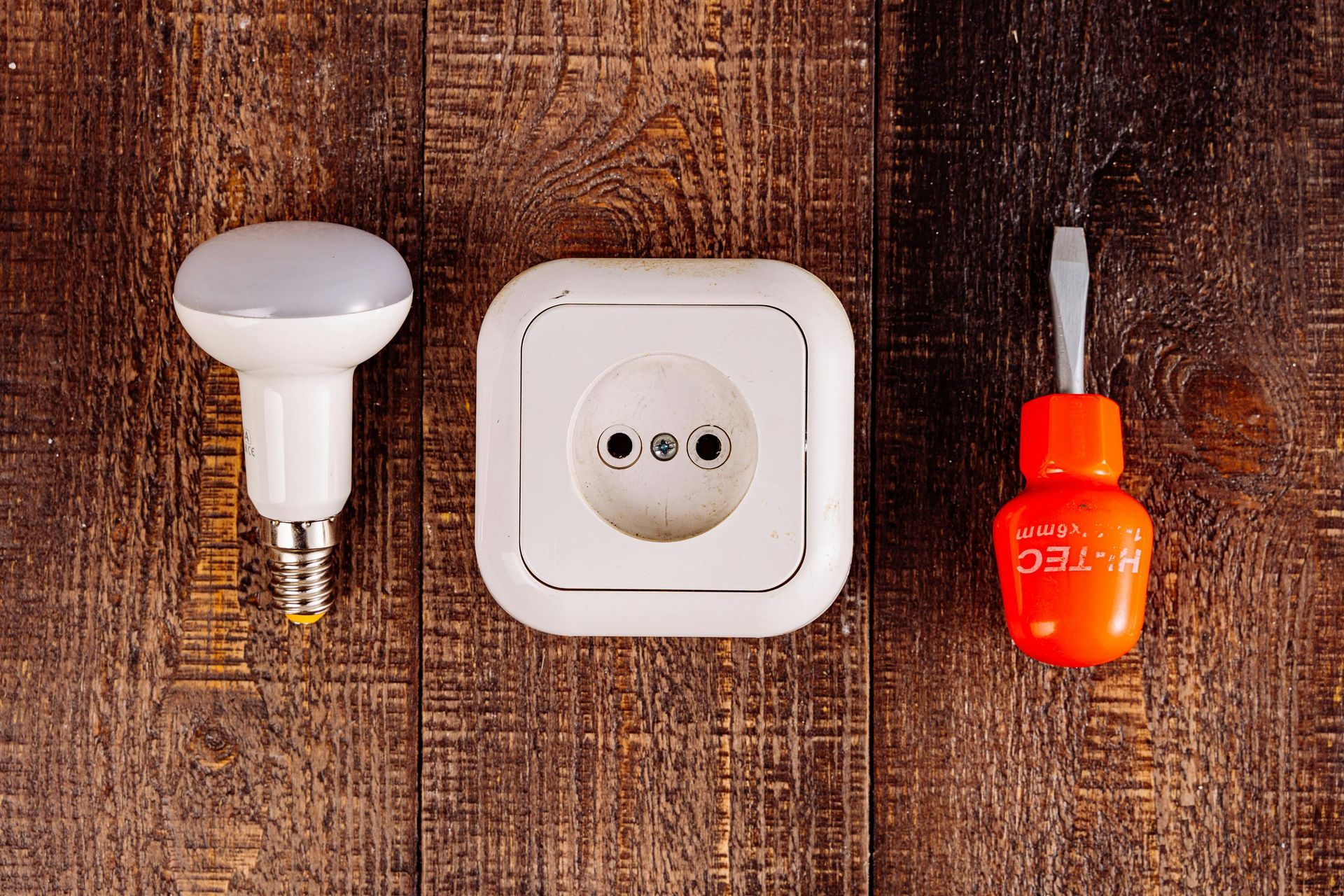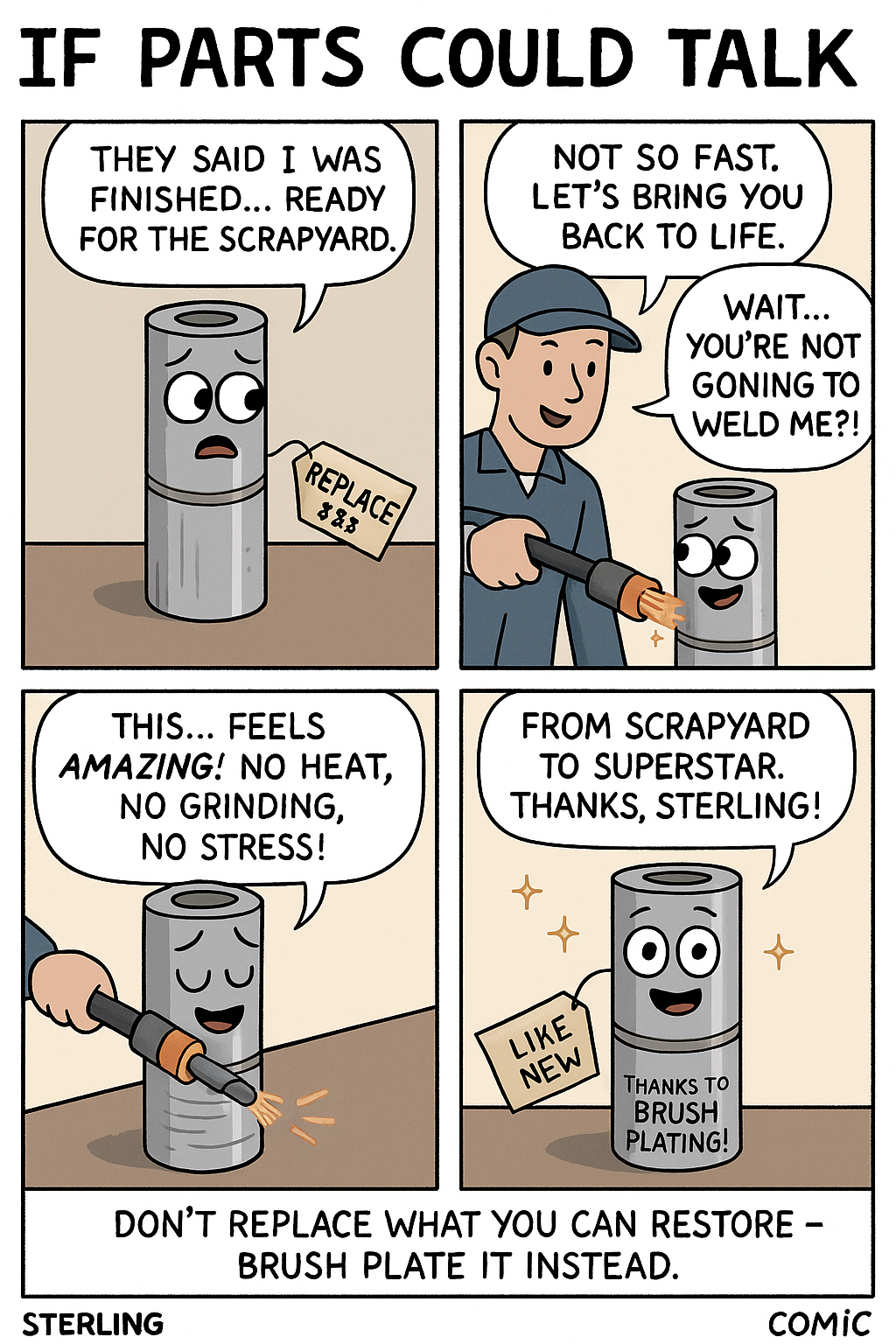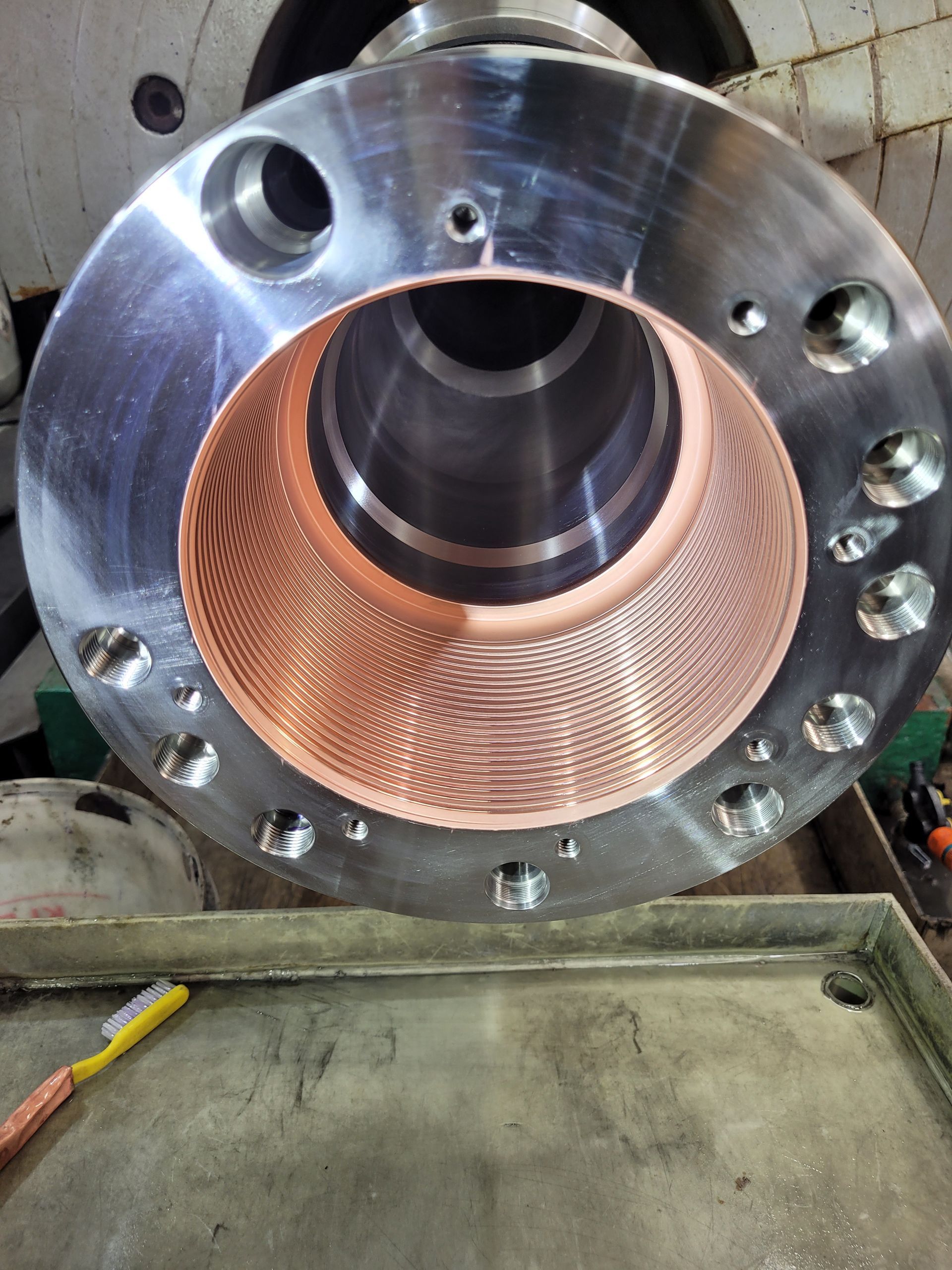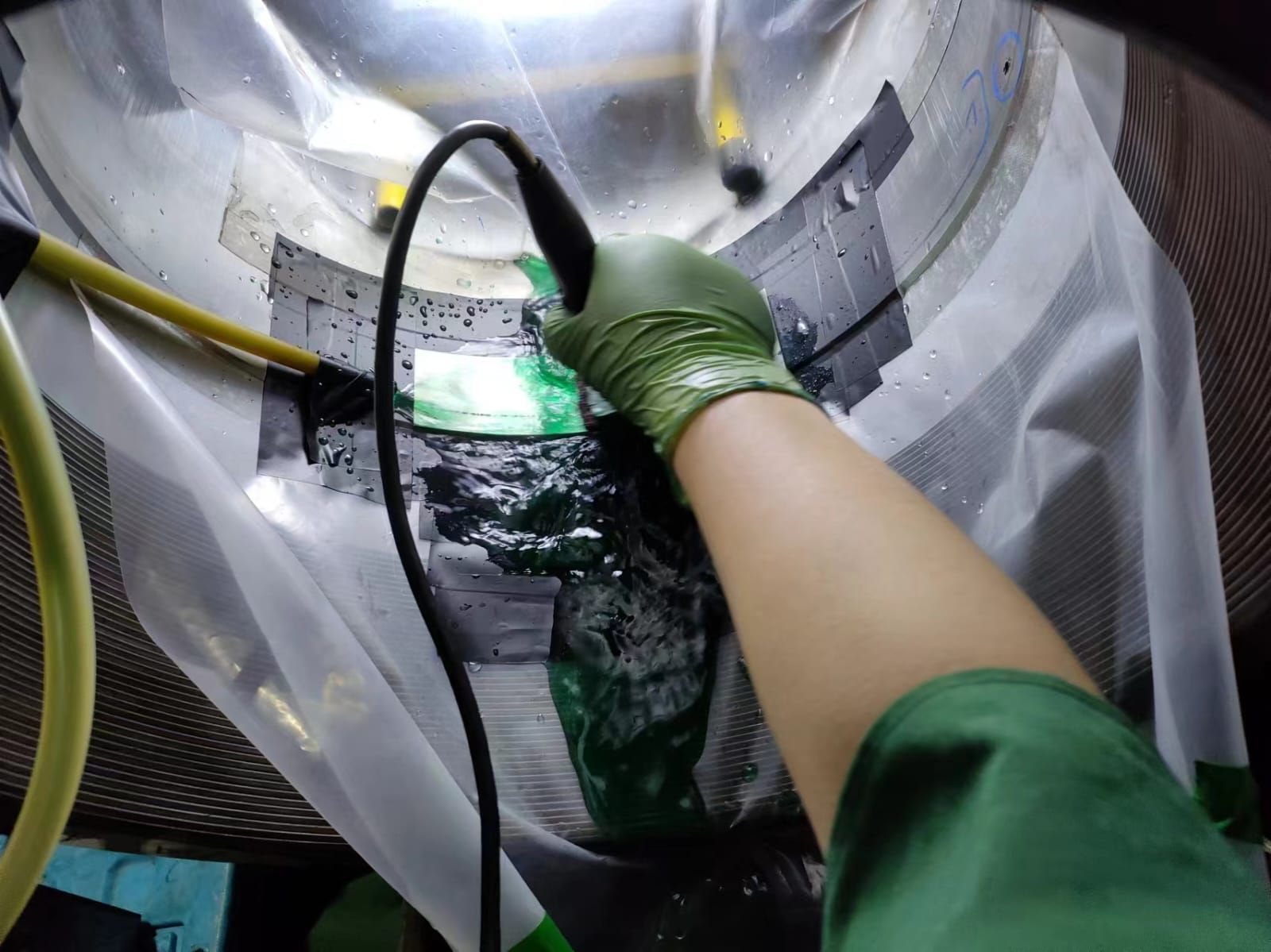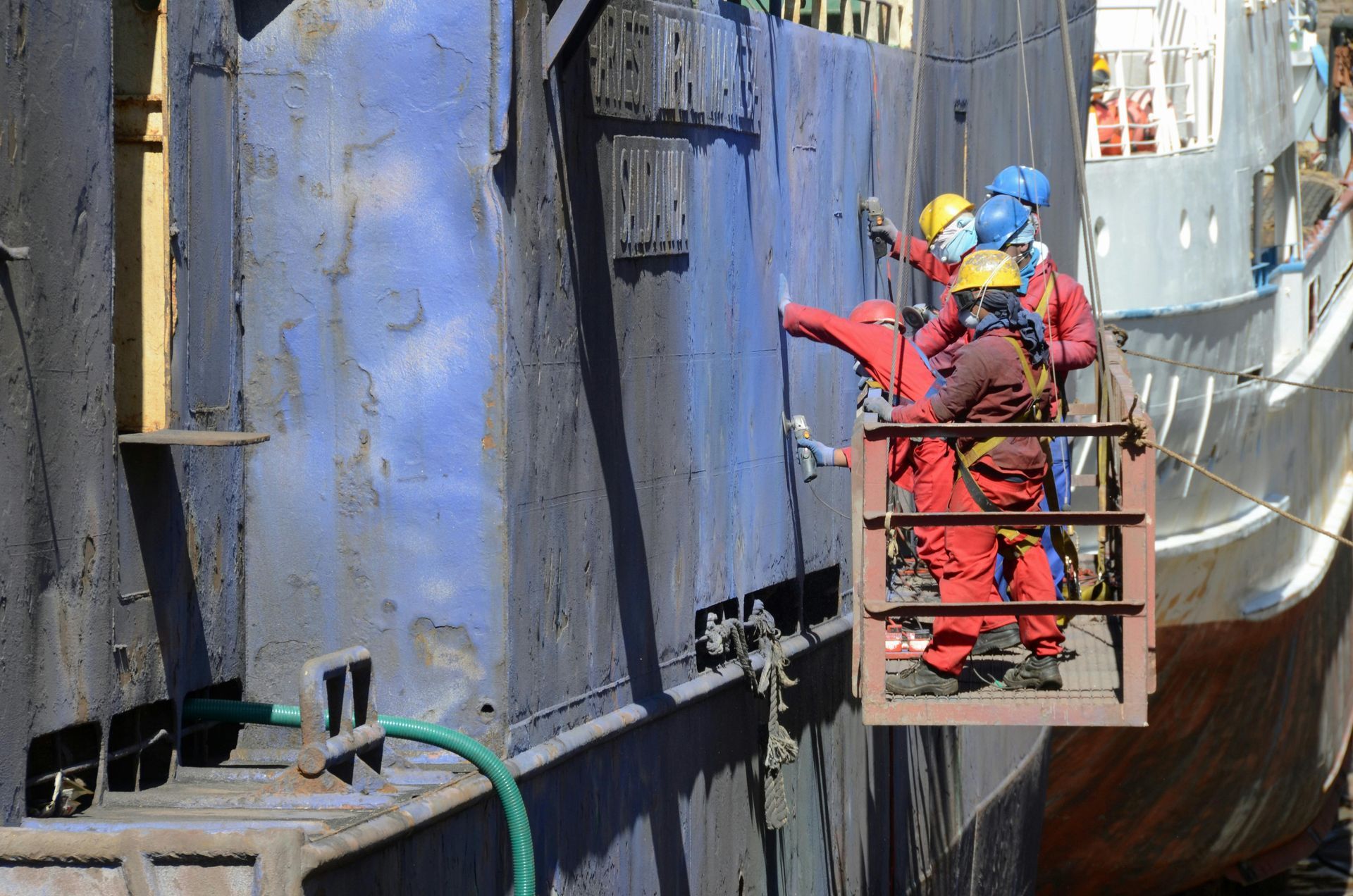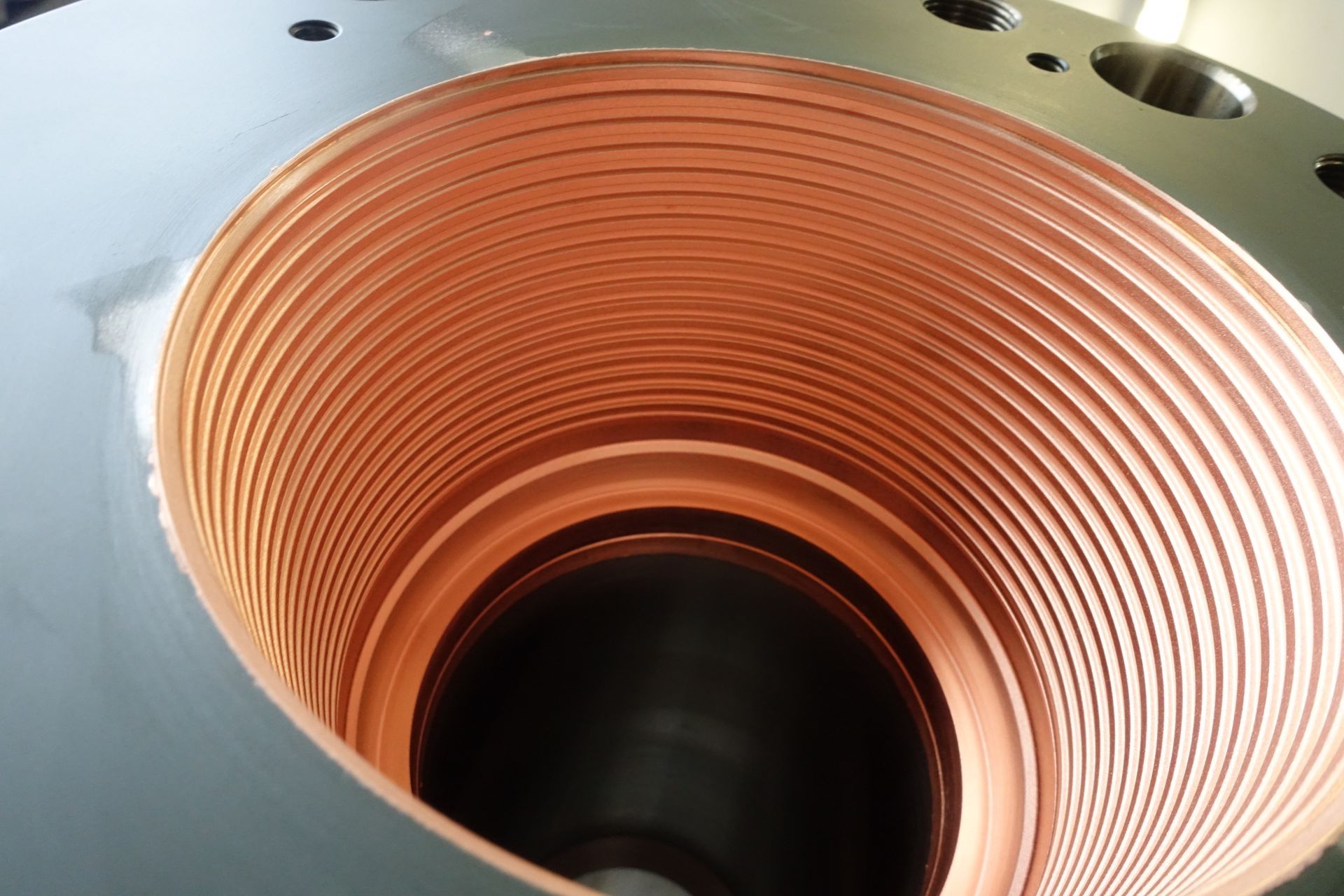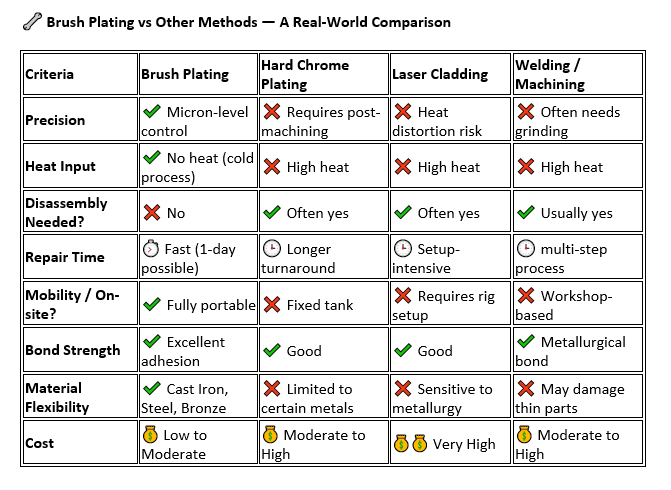Why Copper is the Best Choice for Plating?
Why Copper is the Best Choice for Brush Plating – And Not Chrome or Other Metals
One of the most frequent questions we receive is: "Why do you use copper in Brush Plating instead of chrome or other metals?"
The Case for Copper in Brush Plating
1. Superior Anti-Galling Protection
Galling, or the adhesion of metals under friction, can cause significant damage to threaded components and contact surfaces. Copper, with its malleable nature, acts as an effective buffer between components, reducing friction and preventing galling more effectively than chrome or other hard metals.
In high-pressure applications, copper’s ability to form a robust protective layer is unparalleled, making it ideal for oil tool components such as tubing, casings, and couplings where galling is a major concern.
2. Excellent Adhesion & Durability
Our Brush Copper Plating bonds securely with a wide range of base materials, providing a reliable, long-lasting coating that withstands repeated use and high-pressure environments.
Unlike harder metals like chrome, copper has a natural ability to fill in scorelines, pitting, and other imperfections without compromising the structural integrity of the base material. This adhesion quality translates into extended equipment lifespan and fewer maintenance intervals.
3. Cost-Effective & Environmentally Safer Option
Copper is a more cost-effective choice for brush plating compared to chrome, which can be costly and challenging to apply in certain environments. Copper plating is also easier to maintain, reducing downtime and replacement costs for our customers.
Additionally, copper is a safer alternative, as chrome plating processes often involve hazardous chemicals. Using copper in our brush plating ensures a safer application process, both on-site and in our workshops.
4. Restorative Capabilities
When components experience wear, corrosion, or damage, copper’s malleability allows us to restore them to original dimensions with precision. From hydraulic shafts to landing nipples, copper provides a high-quality repair that brings components back to peak condition, without compromising strength or functionality.
Why Not Chrome or Other Metals?
While chrome and other metals have their applications, they lack the versatility and specific benefits that copper provides in brush plating. Chrome, for instance, is extremely hard but lacks the flexibility that copper offers, making it less suitable for on-site, high-friction applications that demand precise plating. Additionally, chrome’s tendency to crack under strain makes it unsuitable for certain oil tools and industrial equipment where reliability is non-negotiable.




